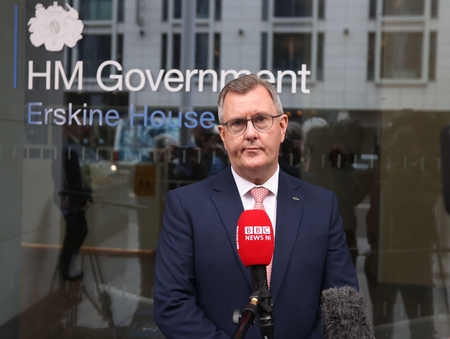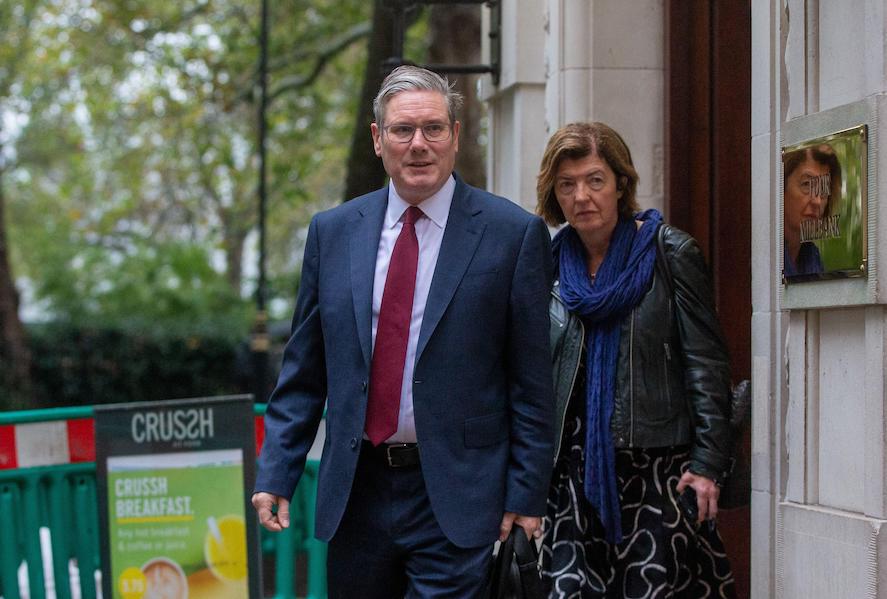DUP MPs will vote against the “Stormont brake”, a key part of the prime minister’s solution to the Northern Ireland Protocol impasse, when it is put before the House of Commons on Wednesday.
In a statement, party leader Sir Jeffrey Donaldson said: “Our party officers, the only decision-making mechanism in our party on these matters, met this morning and unanimously agreed that in the context of our ongoing concerns and the need to see further progress secured whilst continuing to seek clarification, change and re-working that our members of Parliament would vote against the draft statutory instrument on Wednesday.
“We will continue to work with the government on all the outstanding issues relating to the Windsor Framework package to try to restore the delicate political balances within Northern Ireland and to seek to make further progress on all these matters”.
Sir Jeffrey had previously outlined that the power of the “brake”, which would disapply EU law that may be relevant to Northern Ireland, should ultimately rest with Stormont.
Recording patient consultations about consent could avoid litigation

Confusion reigns over promised Govt guidance on blasphemy in schools
Because the ultimate power of the “brake” rests with Westminster, the commons vote on Wednesday will provide for a new statutory instrument that will implement the mechanism.
Rishi Sunak struck the deal on the Northern Ireland protocol in February after months of talks spanning three prime ministers.
The new “Windsor Framework” was announced at a joint press conference attended by the prime minister and the president of the European Commission Ursula von der Leyen.
The prime minister hailed the proposals as a “turning point” for Northern Ireland that would end uncertainty.
The DUP’s newly-announced opposition does not mean the legislation will fail, for Labour have said they will back the deal in any commons vote. However, the decision makes the likelihood of the unionist party rejoining power-sharing slimmer.
The DUP has been boycotting the devolved administration at Stormont for more than a year in protest over post-Brexit trading arrangements.
Last week, former prime minister Tony Blair, who helped negotiate the 1998 Good Friday Agreement which provide for power-sharing in NI, endorsed the new trading arrangements for Northern Ireland.
Giving evidence to the Northern Ireland affairs select committee, Mr Blair said: “My reason for supporting what the government, this prime minister has done, on the Windsor Agreement is that I think it represents the most practical way forward that minimises all the theoretical objections”.





















Discussion about this post